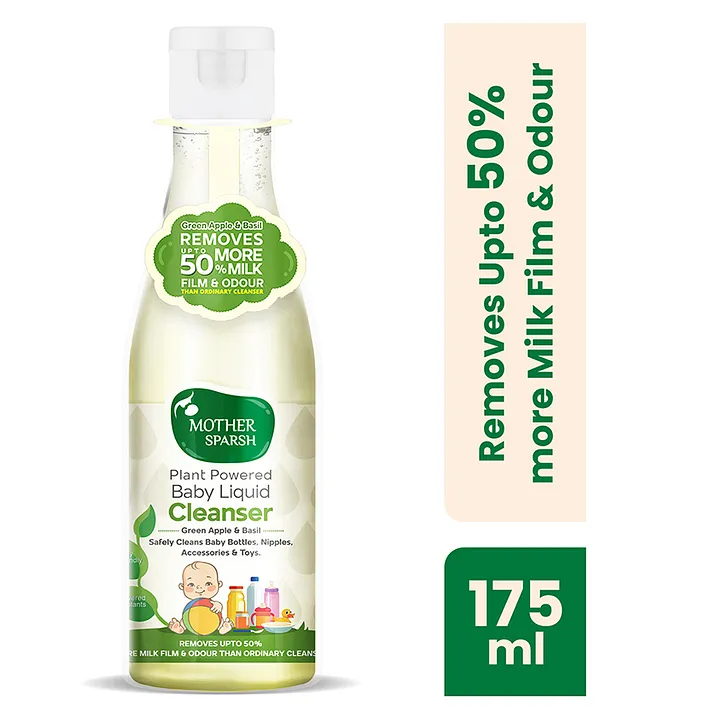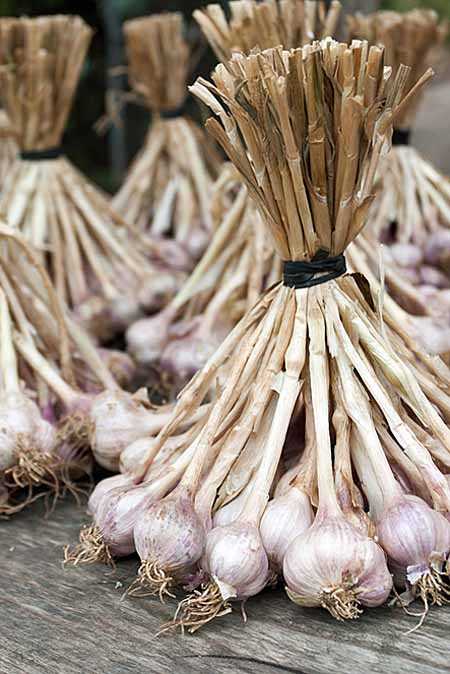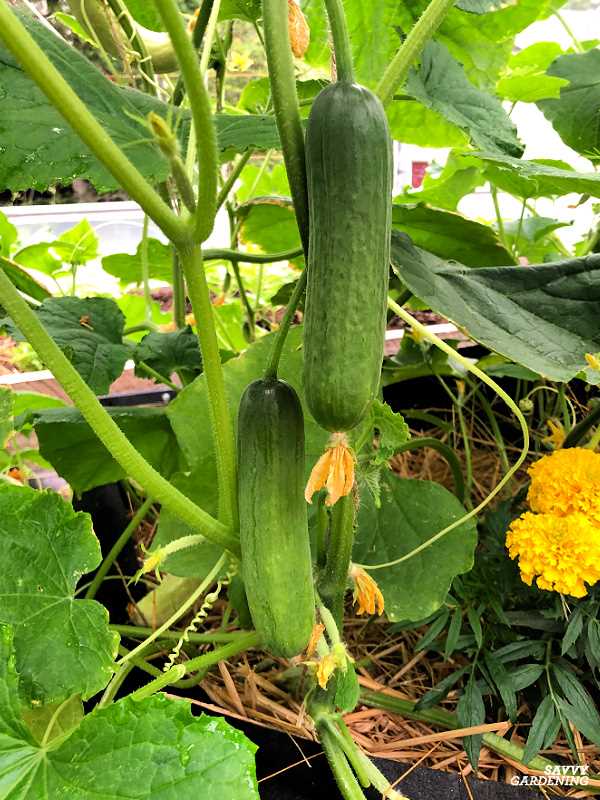- Health Benefits of Basil
- Basil as an Antioxidant
- Basil’s Anti-Inflammatory Properties
- Reduces Inflammation
- Supports Joint Health
- Protects Against Chronic Diseases
- Boosts Immune System
- How to Incorporate Basil into Your Diet
- Precautions and Conclusion
- Basil for Digestive Health
- 1. Relieves Indigestion
- 2. Treats Stomach Cramps
- 3. Soothes Upset Stomach
- 4. Reduces Acid Reflux
- 5. Improves Digestive Enzyme Activity
- 6. Supports Liver Function
- 7. Prevents Stomach Infections
- Basil’s Effect on the Immune System
- 1. Antimicrobial properties
- 2. Antioxidant activity
- 3. Anti-inflammatory effects
- 4. Immune-modulating properties
- Basil as a Natural Stress Reliever
- 1. Calming Effect
- 2. Reduces Cortisol Levels
- 3. Mood Enhancer
- 4. Antioxidant Properties
- 5. Relaxing Aroma
- Basil’s Potential Anti-Cancer Properties
- Anti-inflammatory Effects
- Antioxidant Effects
- Anti-carcinogenic Effects
- Conclusion
- Other Uses of Basil in Cooking and Beauty
- Culinary Uses:
- Beauty Uses:
- “Question-Answer”
- What are some of the health benefits of basil?
- How can I use basil in cooking?
- Is it easy to grow basil at home?
- Does basil have any cosmetic uses?
- What are the different types of basil?
- Can basil be used as a natural remedy for cough and cold?
- “Video” Holy Basil (Ocimum sanctum)
Basil is a versatile herb that has been used for centuries for its medicinal and culinary properties. It is native to India and is a staple in many cuisines around the world, including Italian, Thai, and Mediterranean. Basil is not only known for its delicious taste, but also for its numerous health benefits.
One of the most remarkable properties of basil is its ability to promote healthy digestion. It has been used for centuries as a natural remedy for indigestion, bloating, and gas. Basil contains compounds that help stimulate the digestive enzymes, thereby improving digestion and reducing discomfort.
Another incredible property of this herb is its anti-inflammatory effect. Basil contains powerful antioxidants that help reduce inflammation in the body. This makes it effective in relieving symptoms of inflammatory conditions such as arthritis, asthma, and inflammatory bowel disease.
Basil is also known for its antibacterial and antifungal properties. It contains essential oils that have been found to exhibit strong antimicrobial activity against a wide range of bacteria and fungi. This makes basil an effective natural remedy for common infections such as colds, coughs, and skin infections.
In addition to its medicinal properties, basil is also a rich source of vitamins and minerals. It is especially high in vitamins A, K, and C, as well as iron, calcium, and magnesium. These nutrients play a crucial role in maintaining a healthy immune system, strong bones, and overall well-being.
Furthermore, basil has been found to have a positive effect on mental health. Its aroma has a calming effect on the mind, making it an effective natural remedy for stress, anxiety, and insomnia. In addition, some studies have suggested that basil extracts may help improve cognitive function and memory.
In conclusion, basil is truly an incredible herb with numerous health benefits. Its properties range from promoting healthy digestion and reducing inflammation to fighting off infections and improving mental health. Whether used in cooking or as a natural remedy, basil is a must-have herb in every household!
Health Benefits of Basil
Basil is not just a flavorful herb to add to your dishes, but it also offers numerous health benefits. Here are some of the remarkable health benefits of basil:
- Rich in Antioxidants: Basil is packed with antioxidants that help protect the body against free radicals and reduce oxidative stress.
- Anti-Inflammatory Properties: The essential oils found in basil have anti-inflammatory properties that can help reduce inflammation in the body.
- Boosts Immune System: Basil is rich in vitamins A, C, and E, which contribute to a strong and healthy immune system.
- Supports Digestive Health: Basil has been used for centuries to improve digestion and alleviate gastrointestinal issues such as bloating and indigestion.
- Antimicrobial Benefits: The volatile compounds found in basil have antimicrobial properties that can help fight against harmful bacteria, viruses, and fungi.
- Heart Health: Basil contains compounds that may help lower cholesterol levels and promote heart health.
- Stress Relief: The aroma of basil has been found to have calming effects and help reduce stress levels.
- Anti-Aging Properties: The antioxidants present in basil can help reduce the signs of aging and promote youthful-looking skin.
- Enhances Brain Function: Studies have shown that basil may have cognitive-enhancing effects and help improve memory and focus.
Incorporating basil into your diet can be as easy as adding fresh leaves to salads, pasta dishes, or even making a delicious pesto sauce. With its incredible health benefits, basil is not only a tasty herb but also a valuable addition to your overall well-being.
Basil as an Antioxidant
Basil is not only known for its aromatic taste and distinct flavor but also for its antioxidant properties. Antioxidants are compounds that help protect our cells from damage caused by free radicals, which are unstable molecules that can lead to oxidative stress and contribute to various diseases.
Several compounds found in basil, such as flavonoids and phenolic compounds, have been shown to have strong antioxidant activity. These compounds help neutralize free radicals and prevent oxidative damage to cells.
Studies have demonstrated that basil extracts can effectively scavenge free radicals and reduce oxidative stress in the body. This antioxidant activity may play a role in preventing chronic diseases like heart disease, cancer, and neurodegenerative disorders.
Furthermore, the high content of vitamin C and beta-carotene in basil also contributes to its antioxidant properties. These nutrients act as antioxidants themselves and work alongside other compounds in basil to provide added protection against oxidative damage.
Incorporating basil into your diet can be a simple way to boost your antioxidant intake. You can add fresh basil leaves to salads, pasta dishes, soups, or use it as a garnish. Additionally, basil essential oil can also be used topically to promote skin health and protect against oxidative damage caused by environmental factors.
In summary, basil is not only a flavorful herb but also a powerful antioxidant. Its compounds help protect cells from oxidative stress and may contribute to a reduced risk of chronic diseases. Including basil in your diet or using basil essential oil can be a natural way to boost your antioxidant intake and support overall health.
Basil’s Anti-Inflammatory Properties
Basil is a powerful herb that not only adds flavor to meals but also offers numerous health benefits. One of the significant properties of basil is its anti-inflammatory effect on the body.
Reduces Inflammation
Basil contains essential oils, such as eugenol, linalool, and citronellol, which have been found to possess anti-inflammatory properties. These compounds help inhibit the production of inflammatory molecules in the body, reducing inflammation and its associated symptoms.
Supports Joint Health
Regular consumption of basil can promote joint health by reducing inflammation in the joints. This can be beneficial for people suffering from conditions like arthritis, as it can help alleviate pain and improve overall joint function.
Protects Against Chronic Diseases

Chronic inflammation is closely linked to the development of various diseases, including heart disease, cancer, and diabetes. Basil’s anti-inflammatory properties can help protect against these conditions by reducing chronic inflammation in the body.
Boosts Immune System

In addition to its anti-inflammatory effects, basil also has immune-boosting properties. By reducing inflammation, basil can support a healthy immune system, allowing it to function optimally and defend against infections and diseases.
How to Incorporate Basil into Your Diet
Adding basil to your meals is an easy way to reap its anti-inflammatory benefits. You can use fresh basil leaves in salads, soups, sauces, and marinades. Alternatively, you can make a delicious basil pesto by blending basil leaves, garlic, pine nuts, Parmesan cheese, and olive oil.
Another option is to enjoy basil tea, which can be made by steeping fresh or dried basil leaves in hot water for a few minutes. This soothing tea can help reduce inflammation and promote overall well-being.
Precautions and Conclusion
While basil is generally safe for consumption, some individuals may be allergic to it. It’s always advisable to consult with a healthcare professional before making any significant changes to your diet or incorporating new ingredients.
In conclusion, basil’s anti-inflammatory properties make it a valuable herb to include in your diet. From reducing inflammation and supporting joint health to protecting against chronic diseases and boosting the immune system, basil offers numerous benefits for overall well-being.
Basil for Digestive Health
Basil is not only a delicious herb that adds flavor to your favorite dishes, but it also offers numerous benefits for your digestive health. Here are some of the ways basil can support good digestion:
1. Relieves Indigestion
Basil contains compounds that help in relieving indigestion and stomach discomfort. Its carminative properties help in reducing gas and bloating, promoting better digestion.
2. Treats Stomach Cramps
Thanks to its antispasmodic properties, basil can effectively treat stomach cramps and spasms. It relaxes the muscles in the gastrointestinal tract, providing relief from discomfort.
3. Soothes Upset Stomach
If you’re suffering from an upset stomach, a cup of basil tea can do wonders. Basil has calming properties that help in soothing an upset stomach and reducing nausea.
4. Reduces Acid Reflux
The anti-inflammatory properties of basil can help in reducing acid reflux and heartburn. It can soothe the lining of the esophagus and prevent the backward flow of stomach acid.
5. Improves Digestive Enzyme Activity
Basil has been found to enhance the activity of digestive enzymes, which are essential for breaking down food and facilitating nutrient absorption. This can lead to improved digestion and nutrient utilization.
6. Supports Liver Function
The liver plays a crucial role in digestion and detoxification. Basil contains compounds that support liver function and promote healthy digestion. It can aid in the metabolism of fats and help maintain a healthy liver.
7. Prevents Stomach Infections
Basil has antimicrobial properties that can help in preventing stomach infections caused by bacteria like E. coli and salmonella. It can inhibit the growth of harmful bacteria and promote a healthy balance of gut microbiota.
Adding basil to your diet or consuming it as a herbal tea can provide these digestive benefits and improve your overall digestive health. Make sure to consult with a healthcare professional before making any significant changes to your diet or using basil for medicinal purposes.
Basil’s Effect on the Immune System
Basil is not only a flavorful herb that enhances the taste of various dishes, but it also offers numerous health benefits. One of its remarkable properties is its effect on the immune system. Consuming basil regularly can help strengthen and support the immune system, leading to better overall health.
1. Antimicrobial properties
Basil contains natural antimicrobial compounds that can help fight off various pathogens, including bacteria, viruses, and fungi. These compounds, such as eugenol and cineole, have been found to have strong antibacterial and antiviral effects, inhibiting the growth of harmful microorganisms.
2. Antioxidant activity
Basil is rich in antioxidants, such as flavonoids and phenolic compounds, which help protect the immune system from oxidative stress and damage caused by free radicals. These antioxidants help neutralize harmful molecules and reduce inflammation, thus supporting the immune system’s function.
3. Anti-inflammatory effects
Chronic inflammation can weaken the immune system and make it more susceptible to infections and diseases. Basil contains essential oils, including eugenol and rosmarinic acid, which have potent anti-inflammatory properties. These compounds can help reduce inflammation and promote a healthier immune response.
4. Immune-modulating properties
Basil has been found to have immune-modulating effects, which means it can help regulate the immune system’s activity. It can stimulate the production of protective immune cells, such as lymphocytes and natural killer cells, while also regulating the production of inflammatory cytokines. This balance is crucial for a healthy immune system.
Overall, incorporating basil into your diet can provide a natural boost to your immune system. Whether consumed fresh or in dried form, basil can be easily added to salads, soups, sauces, and many other dishes. Its immune-boosting properties make it a valuable herb to include in your daily routine for better overall health and well-being.
Basil as a Natural Stress Reliever
Basil, commonly known as the “king of herbs,” is not only a flavorful addition to various culinary dishes, but it also has incredible health benefits. One of its remarkable properties is its ability to act as a natural stress reliever.
1. Calming Effect
Basil contains compounds such as eugenol, linalool, and rosmarinic acid, which have been found to have calming and soothing effects on the mind and body. Consuming basil or using basil essential oil can help reduce feelings of anxiety and promote a sense of calmness.
2. Reduces Cortisol Levels
Chronic stress can lead to an increase in cortisol levels, which can have negative effects on both physical and mental health. Basil has been shown to help lower cortisol levels and regulate the body’s stress response. This can promote a more balanced mood and improved overall well-being.
3. Mood Enhancer
Basil contains compounds that can stimulate the production of certain neurotransmitters, such as dopamine and serotonin. These neurotransmitters are often referred to as “feel-good” chemicals because they contribute to feelings of happiness and well-being. Consuming basil can help enhance mood and promote a positive outlook.
4. Antioxidant Properties
Stress can cause oxidative damage to the body’s cells, leading to various health issues. Basil is rich in antioxidants, such as flavonoids and phenolic compounds, which help neutralize harmful free radicals and protect the body against oxidative stress. This can reduce the overall impact of stress on the body.
5. Relaxing Aroma

The pleasant and uplifting aroma of basil can have a relaxing effect on the mind and body. Inhaling the scent of basil leaves or using basil essential oil in aromatherapy can help relieve tension and promote relaxation.
Incorporating basil into your daily routine can be a simple and effective way to manage stress naturally. Whether added to meals, consumed as tea, or used in aromatherapy, this incredible herb can help soothe and calm both the mind and body.
Basil’s Potential Anti-Cancer Properties
Research has shown that basil may have potential anti-cancer properties. Studies have indicated that basil extract and its compounds, such as eugenol, may help in preventing cancer development and growth.
Eugenol, one of the main active compounds found in basil, has been studied for its potential anti-cancer effects. It has been found to have anti-inflammatory, antioxidant, and anti-carcinogenic properties.
Anti-inflammatory Effects
Chronic inflammation is a contributing factor to the development of various types of cancer. Basil’s anti-inflammatory properties, particularly eugenol, may help reduce inflammation and potentially inhibit the growth and spread of cancer cells.
Antioxidant Effects
Basil contains various antioxidants, including eugenol, that can neutralize harmful free radicals in the body. Free radicals can cause cellular damage and contribute to the development of cancer. By neutralizing these free radicals, basil may help prevent oxidative stress and reduce the risk of cancer.
Anti-carcinogenic Effects

Eugenol, found in basil, has been shown to have anti-carcinogenic effects in various types of cancer cells. It can induce cell death (apoptosis) in cancer cells and inhibit their growth and proliferation.
However, it is important to note that while basil and its compounds show promise in preventing and treating cancer, further research is needed to fully understand their mechanisms and potential benefits in humans.
Conclusion

Basil’s potential anti-cancer properties make it a valuable herb in promoting overall health and well-being. Its anti-inflammatory, antioxidant, and anti-carcinogenic effects may help in the prevention and treatment of cancer. Incorporating basil into your diet or using basil extracts as a supplement may be a beneficial addition to a cancer-fighting lifestyle.
Other Uses of Basil in Cooking and Beauty
Basil is not just limited to enhancing the flavor of dishes, but it also has other interesting uses in cooking and beauty. Here are some of the lesser-known ways you can utilize basil:
Culinary Uses:
- Infused Oils: Basil can be used to make infused oils by steeping the leaves in olive or vegetable oil. These oils can be used to add a unique flavor to salads, pasta, or grilled vegetables.
- Herbal Butter: Incorporating finely chopped basil leaves into butter can create a flavorful spread for bread or an amazing addition to roasted vegetables.
- Basil Pesto: A classic Italian sauce made with basil, pine nuts, garlic, Parmesan cheese, and olive oil. It can be used as a condiment, pasta sauce, or spread for sandwiches.
- Flavored Vinegar: Infuse vinegar with basil leaves to create a tangy and aromatic ingredient suitable for dressings, marinades, or dipping sauces.
- Basil Infused Syrups: Basil can lend its refreshing taste to syrups that can be used in cocktails, lemonades, or even drizzled over desserts.
Beauty Uses:
- Skin Toner: Basil has antibacterial properties that can help cleanse and tone the skin. Mix basil leaves with water or rosewater and use it as a natural facial toner.
- Hair Rinse: Boil basil leaves in water and use the cooled mixture as a final hair rinse to add shine and promote hair growth.
- Foot Soak: Soaking your feet in warm water infused with basil leaves can help alleviate foot odor and relax tired muscles.
- Aromatherapy: Basil essential oil is known for its uplifting and calming scent. Add a few drops to your bathwater or use it in a diffuser to create a relaxing atmosphere.
Incorporating basil into your culinary and beauty routines can not only add a delightful flavor and aroma but also provide numerous benefits for your overall well-being.
“Question-Answer”
What are some of the health benefits of basil?
There are numerous health benefits of basil. It is known to have anti-inflammatory properties, promote cardiovascular health, and work as a natural antibiotic.
How can I use basil in cooking?
Basil can be used in a variety of culinary dishes. It can be added to salads, pasta sauces, soups, and even used to make pesto.
Is it easy to grow basil at home?
Yes, basil is relatively easy to grow at home. It requires a sunny location, well-drained soil, and regular watering.
Does basil have any cosmetic uses?
Yes, basil can be used in skincare products. It has antibacterial properties and is known to help treat acne and other skin conditions.
What are the different types of basil?
There are many different types of basil, including sweet basil, Thai basil, lemon basil, and holy basil.
Can basil be used as a natural remedy for cough and cold?
Yes, basil can help relieve symptoms of cough and cold. It can be consumed in the form of herbal tea or added to hot water for steam inhalation.







